Opinion
IN DEFENCE OF THE DEFENSELESS JUDGES WHO ARE DOING THEIR JOB ACCORDING TO THE DICTATES OF THEIR CONSCIENCE

By Achi. William-Wobodo
Being a judge, is a tough personal call to make. It is a highly demanding and ethical job to do, which makes a judge vulnerable and prone to bullying. A judge is trained to rise up in defence of the defenseless, yet he cannot defend himself. The rot in our society has made the job even more hazardous.
For every judgement that does not go in the way of public opinion and expectation, the judge is blamed and accused of corruption. This is unpatriotic. Judges are not employed to pander to public opinion. I am not in anyway suggesting that there are no corrupt judges in the system, but I honestly believe that the incorrupt ones are much more than the corrupt ones.
As we know it, Nigeria operates an adversarial legal system, which means that the parties are responsible for providing evidence upon which the court predicates its judgement. This is different from the inquisitorial system where the Court gets involved in the investigation of the facts of a case. Our legal system forbids a judge from applying extraneous facts in the determination of a case, except those brought before it by the parties in accordance with the law of evidence. In others words, even if a judge witnesses an event, he cannot apply his eye-witness account/evidence in his determination of the case. At best, he may recuse himself from such a case.
In the last few months, on account of THE POLITICAL CRISIS IN RIVERS STATE, Judges of the Federal High Court, especially, have come under serious public attacks and aspirations from some misinformed members of the public and MISCHIEVOUS LAWYERS, some of whom are either ignorant of courtroom practices and procedures or are indulging in clout chasing ventures. It is even more reprehensible and shameful when lawyers, who ought to have known better, are the ones indulging in such unethical and unprofessional conducts. These lawyers know that JUDGES HAVE NO RIGHT OF PUBLIC REPLY, yet they chose to castigate and cast aspersions on them; Most times, based on unsubstantiated allegations.
It is AN ACT OF COWARDICE TO CONTINUOUSLY ATTACK A DEFENSELESS PERSON.
LET ME EVEN CONSIDER TWO SCENARIOS FROM RIVERS STATE AS EXAMPLES.
In the wake of the crisis now rocking the Rivers State Government, between the Executive arm (the Governor) and Legislature arm; over the “alleged division” in the Rivers House of Assembly (RSHA) at the time. The Speaker of the RSHA (Rt. Hon. Martins Amaehwule) and the RSHA itself approached the Federal High Court for the determination of several questions, including: whether or not the “ALLEGED CRISIS/DIVISION IN RSHA” had crystallized to the point that the National Assembly (NASS) can takeover the functions of the RSHA pursuant to SECTION 11(4) of the 1999 Constitution, whether there was division in the RSHA, who was the authentic Speaker of the RSHA, etc.
Based upon which Rt.Hon. Amaehwule and the RSHA asked for declarations that Rt.Amehwule is the authentic Speaker of RSHA, that the crisis in RSHA did not warrant the NASS to takeover the functions of the RSHA, that the RSHA is entitled and empowered to make Appropriation Laws for Rivers State, including 2024 Appropriation Law, etc. Most of the Defendants in the case put up nominal appearance and defence in the matter, EXCEPT FOR the Governor of Rivers State and Rt. Hon. Edison Ehie (factional speaker at the time) who put up contest in the case.
Before or on the day fixed for the hearing of the case, Mr. Governor through his Counsel withdrew his Counter Affidavit/Defence (for reasons best known to the Governor and of course he is entitled to) and his Defence to the case was accordingly struck out. In same vein, Rt. Hon. Edison Ehie not only withdrew his own Counter Affidavit/Defence to the case, he presented a letter indicating his resignation as a Member of the RSHA. In other words, he also affirmed to the Court that he has lost his right, if any, to the claim of Speakership of the RSHA.
Invariably, there was NO CONTENDING DEFENCE to the case of Rt. Hon. Amaehwule and the RSHA. Justice Omotosho reviewed the evidence before him, which were DEEMED UNCHALLENGED and then reached conclusions and entered judgement for Rt.Hon. Amaehwule and RSHA to the effect that THERE WAS (IS) NO DIVISION in the RSHA, that Rt.Hon Amaehwule is the AUTHENTIC SPEAKER of the RSHA, that the RSHA led by Rt.Hon. Amaehwule is the rightful RSHA to make Appropriation Laws for Rivers State, that the Governor should present the 2024 Appropriation Bill before the appropriate RSHA.
It is important to mention that one of the issues raised by the Governor in his withdrawn Defence/Preliminary Objection was the fact that no Pre-Action Notice was served on the NASS before the action was commenced. Yes, the issue was jurisdictional in nature, but it a PROCEDURAL JURISDICTION ISSUE, not a substantive jurisdiction issue. The law is settled that a procedural jurisdiction question touching on non-service of pre-action notice can only be raised by the person directly affected, in that case NASS. The reason is because, the party concerned has an option to waive the right and proceed to defend the case against him without objection. The NASS took part in defense of the case.
In any case, the Governor withdrew his objection.
I have asked all those who fault the decision of Hon. Justice Omotosho in the media to point a finger to a fault, either in procedure or decision, in the judgement and I am yet to see o finger. Assuming anyone still had doubts about that judgement, the Court of Appeal had cleared the doubt.
The Governor who submitted to judgement by withdrawing his defence refused to obey the same judgement.
Not surprisingly, the Governor who in law is DEEMED TO HAVE CONSENTED TO THE CASE of Rt. Hon Martins Amaehwule before the Federal High Court, went to the Court of Appeal to challenge a JUDGEMENT OF FHC DEEMED TO HAVE BEEN ENTERED BY “HIS CONSENT”, WITHOUT THE LEAVE OF COURT to so do, contrary to SECTION 241(2)(c) of the 1999 CONSTITUTION and decided cases: See: ABDULKARIM VS. INCAR (NIG) LTD, (1992) LPELR-26(SC) (Pg.23-24, para D-A). The Governor also challenged the procedural jurisdiction of the Federal High Court predicated on non-service of pre-action notice on the NASS, a personal right of the NASS which was waived by the NASS by participating in the case without objection.
The Court of Appeal dismissed the appeal for lacking in merit, and the Court is blamed; it is corrupt.
ANOTHER CASE: All People’s Party (APP) filed an action before the Federal High Court seeking a declaration that Rt. Hon. Amaehwule and 26 others have lost their seat. The APP commenced the action through an ORIGINATING SUMMONS, which is a procedure used for determination of non-contentious and non-hostile facts. Perhaps, the APP and its lawyers had expected an easy sail from Rt.Hon. Amaehwule and members of the RSHA. They are used to defection cases where the Defendants would say, “yes we defected because our party has dispute or division”: and then the court is called upon to interpret the admitted facts vis-a-vis the law.
They had expected Rt. Hon. Amaehwule and co to say we defected. Unfortunately, they met an unanticipated shocker, a brick wall; Rt.Hon. Amaehwule and co stated that they did not defect. A case which APP and it’s lawyers had thought would be heard based on non-contentious facts, had automatically become contentious and hostile by that singular denial.
The APP and it’s lawyers had three (3) options open to them by that material denial: (1) withdraw the case and file a fresh suit via Writ of Summons, (2) apply to the Court to order the parties to file pleadings, which would allow them to call oral evidence to prove the allegation of defection or (3) continue the case in its form with ruptured foundation and foreseeable pitfalls. They opted for number (3) and proceeded with their Originating Summons, then filed FURTHER AFFIDAVIT to which they ATTACHED A FLASH DRIVE that “allegedly” contained video clip of a certain defection.
The questions and challenges then arose: how and where does the court watch or see the content of the flash drive? ls it while in his chambers writing the judgement? If there is anything that needs clarification from the flash, who does he turn to in his chambers? Would he call the APP or its lawyers for explanation?
On realizing the procedural error, the APP still had an option of applying to that Court to convert the case by filing pleadings and to call oral evidence in order to resolve the allegation of defection, they did not. Rather, they pushed on with yet another and graver procedural error. The APP decided to play the video in the flash drive in open court, WITHOUT ANY WITNESS TO DEMONSTRATE THE VIDEO, TO IDENTIFY THOSE IN THE VIDEO OR WHERE THE “MOVIE” WAS SHOT, OR TO IDENTIFY THE MAKER OF THE MOVIE (VIDEO) (the CONTENT CREATOR). They pushed the procedural comedy and errors to a finish and left.
The the Judge was expected to perform a miracle, regularize the errors and grant them judgement.
Anyways, based on settled position of the law as decided by the apex Court, the Federal High Court Judge had no difficulties trashing and discarding the flash and its content as a piece of document dumped on the court. With that trashy piece of evidence made worthless by the inadvertence of counsel off the way, the Court was left with reviewing any other means of proof of membership of the said RSHA members, which should include, either APC membership register, PDP membership register, letter of resignation, etc. Unfortunately, these evidence were not before the Federal High Court. The Court therefore had no difficulty in reaching a finding that the APP did not prove defection.
As we now know, a judge, based on our adversarial legal system, cannot apply his residual knowledge of or any extraneous facts, not duly presented before him in accordance with the Law of Evidence, in the determination of any case before him. So, it remains immaterial if the judge’s wife was a camera person who made the “alleged” video or that the judge himself was in the chambers of RSHA on such a day or that he read or saw on news media any of the facts in contention. The law is that such facts MUST NOT ONLY BE BROUGHT BEFORE THE COURT, BUT ALSO IN LINE WITH THE EVIDENCE ACT, otherwise the judge cannot rely on them.
Sadly, we do not see the public blame lawyers, who either by inadvertence, overconfidence, indiscretion, desire for speedy trial, etc, destroy a hitherto actionable and legitimate cause of action and eventually their clients’ case. All we see are aspersions on Judges.
If non-lawyers feign ignorance of the workings of the Court, it may be justified and pardonable; but should same go for lawyers, who should haven better. Every lawyer knows when he has made a mistake in the prosecution of case, he is human who is prone to errors. If he is not courageous enough to own his mistakes, he should at least be honourable enough to keep quiet and not pass his blame by alleging corruption against the Judge.
It is a moral issue for both the lawyers and the litigants who cast aspersions on the courts. For instance, In 2023, the Court of Appeal, Abuja Division and the Supreme Court of Nigeria affirmed the Governor of Rivers State as the duly elected governor of Rivers States, the Governor organized thanksgivings, where he eulogized the Court of Appeal and Supreme Court Justices as men of honour and integrity. Those who lost took it in good faith and obeyed the orders of Courts.
At that time, no one heard the Governor make any insinuations of corruption against these courts. Few months afterwards, the Governor was ordered to present Rivers State Appropriation Bill to the RSHA recognized by the same Court that had recognized the Governor few months earlier, and what we now hear from SAME Governor who eulogized SAME Courts are insinuations of corruption against the courts. It seems hypocritical to me.
Litigants and lawyers must stop this act of casting aspersions on judges simply because the judges are not allowed by the ethics of their job to react. Should any one have proof of corruption against a judge, let him seek redress lawfully rather the public opprobrium. And for lawyers, whom I believe to be legal scholars in the college of continuing legal education, if anyone strongly feels that a decision of a court is wrong in law, and he cannot resort to appeal because he is not counsel in the matter, then such a lawyer can do a legal essay to query/critic decision based on acceptable legal review mechanisms, not by deploying blackmail and defamation.
Judges are human, they also have feelings and emotions which are bruised by these aspersions.
Please, SAY NO TO SOCIAL MEDIA BLACKMAIL, BULLYING, IRRITATION, ASPERSIONS on judges doing their legitimate jobs according to the dictates of their conscience. If they err or are corrupt, seek legitimate redress.
Achi. William-Wobodo
Lawyer writing from Port Harcourt
Opinion
OF ABUJA INVESTMENT COMPANY, TAMUNO, WIKE, AND TINUBU’S “RENEWED HOPE” AGENDA
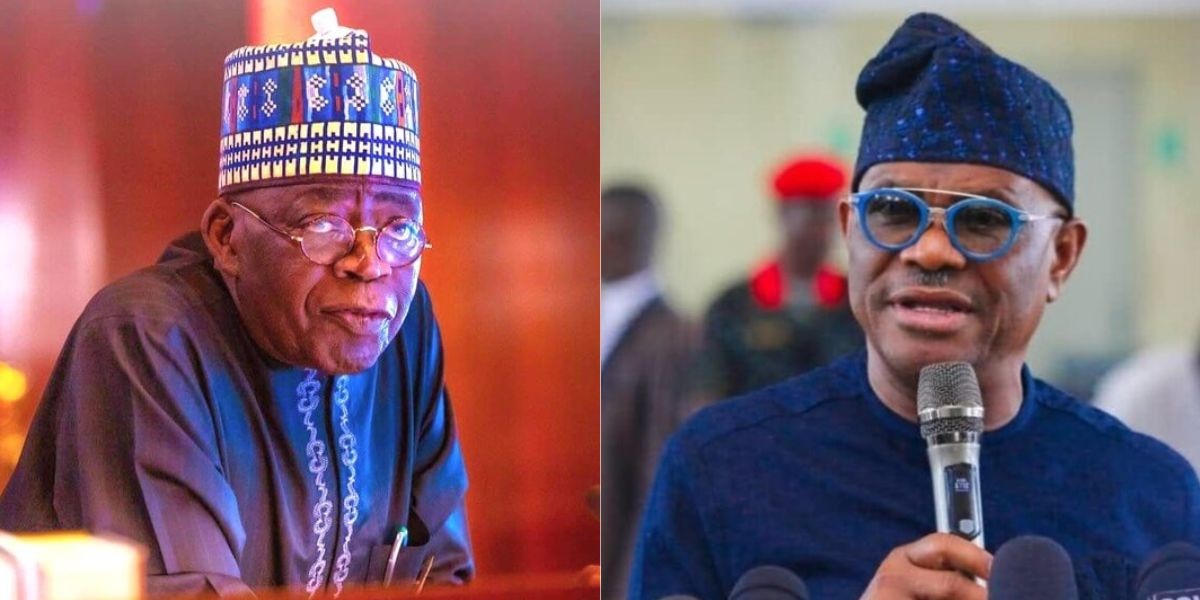
BY BOLAJI AFOLABI
Established in 1994 by the military administration of late General Sani Abacha, the Abuja Investments Company Limited, (AICL) is positioned as a government-owned investment enterprise charged with the responsibility to drive economic development in the federal capital territory. Its primary goal is to promote strategic investment and boost realistic economic growth of the FCT through different platforms and various approaches. Key functions of the AICL include Business Development; Investment and Development; Public-Private Partnership; Facility Management; and Infrastructure Development. The AICL has several subsidiaries and associates including Abuja Property Development Company, (APDC); Abuja Markets Management Limited, (AMML); Abuja Urban Mass Transport Company, (AUMTCO); Abuja Technology Village Free Zone; Abuja Film Village International Limited; PowerNoth/AICL Equipment Leasing Company. Others include Aso Savings and Loans PLC; Abuja Power Company Limited; Abuja Leasing Company; and Abuja Downtown Mall.
From 1994 till the exit of the military from national governance in 1999, the AICL recorded few achievements. During this period, the AUMTCO, and Aso Savings and Loans were established. With the dawn of democratic government in 1999, it was expected that the FCT, being an emerging federal capital will benefit hugely from the activities of the AICL. However, nothing much was achieved between 1999 and 2003. Somehow, Mallam Nasir El-Rufai, who administered the FCT from July 2003 to July 2007, was able to change the tide. Under his watch, the AICL came alive, recorded some measure of visibility and attracted positive public perception. Sadly, the AICL took a downward slide thereafter. None of the past ministers; Aliyu Modibbo Umar, Adamu Aliero, Bala Mohammed, and Muhammed Musa Bello provided the necessary political will and support for the AICL to maximally attain full potential. Indeed, it got worse between 2015 and May 2023 that many residents forgot that the company was still existing.
Many critical stakeholders were worried about the depth of neglect, static state, and institutional damage that the AICL was subjected to. Patterned after similar agencies in some developing nations, where measurable strides are achieved, the reverse happened with the AICL, that it became recurring causes of worries, and regrets to many people. Alhaji Aminu Mohammed, a former staff member of FCTA said, “it was shameful that the company remained largely dormant for many years.” Corroborating, Mr. Gilbert Gyang, an Abuja based investment expert declared, “the AICL, especially during the last administration was arguably comatose. It merely existed on paper, there was no visible investment initiative geared towards economic growth in the federal capital.” For Ms. Winifred Anosike, former banker, and development consultant, “it’s painful that the company was practically inactive for years. It was not only affecting economic growth in Abuja but impacted negatively on people and firms with result-driven initiatives who desired to contribute actively to the development of the capital city.”
With the emergence and subsequent inauguration of President Bola Tinubu on May 29, 2023, key players in the investment sector were hopeful that, the AICL may breathe again. Many hinged their thoughts on Tinubu’s background and experiences in accounting, financing, investment, governance, and leadership. Though with caveats; the choice of who minister’s FCT will be pivotal. Convinced that the AICL should be the “engine room” of economic growth and development of the capital city, many hoped that Tinubu will deploy the appropriate person to oversee the strategic ministry. Some stakeholders concluded that a wrong choice may consign the AICL into the “wilderness of inactivity” and likely extinction. Somehow, key players in the investment sector, at different fora and platforms were upbeat that Tinubu will pick the right person, who they hope will lead the way towards enabling the AICL to get back its mojo.
In August 2023, the deployment of Barrister Nyesom Ezenwo Wike as the Minister of the FCT; the 8th since Nigeria’s return to democratic government elicited public endorsement. Tinubu’s choice was largely celebrated by many stakeholders, as it renewed optimism about the prospects of AICL reviving its activities. Cognisant of Wike’s legendary achievements, as Rivers state Governor where he embarked on massive infrastructure development and more, turning the “Treasure Base” to the central investment hub in the South South zone, and emerging as second to Lagos state, many were confident that “light will come” to the AICL. A similar spate of enthusiasm and expectations was prevalent in and around the AICL. Many of the staff members also shared the positions.
The atmosphere at the Garki District offices of AICL on April 7, 2024 was ecstatic when news filtered in that Wike had appointed Dr. Maureen Tamuno as the Group Managing Director. A few hours later, it turned to frenzy after goggle checks were done by some staff members to have glimpses of her profile. Impressed, and satisfied with her multi-disciplinary academic background, and multi-faceted careers, her appointment was described as well-thought, and well-deserving. The unanimity of opinion was that, being a round peg in a round hole, the AICL will leverage on her far-reaching experiences and exposures as a former lawmaker, seasoned diplomat, public administrator, and boardroom strategist.
Aware and ready for the challenges ahead, many staff members were visibly excited when Tamuno assumed office the following day. Thus emerging as the first female chief executive of the AICL, since its 30 years of existence. Described as an accomplished technocrat with identifiable achievements in leadership, strategy, diplomacy, administration, and consulting, Tamuno, in her maiden speech confirmed the postulations of staff members. She emphasized her, “commitment to open-door policy to all staff, urging everyone to operate at the highest standard of transparency, confidentiality, accountability, and ethical business practices.” Continuing, she assured staff members that her, “strategic approach and consumer-centric philosophy are expected to propel the AICL to new heights of success.”
From reports, challenged by the enormity of the task ahead, conscious of the hugely untapped potential of the AICL, buoyed by the political support of Wike, and encouraged by the passion of the staff members, Tamuno literally hit the ground running. As a globally-recognized business development, management, and investment professional, she approached her assignment with iron-cast resolve, and the precision of a surgeon. First off, she embarked on critical reviews and overview of the AICL trajectory from inception; identified germane issues; evolved strategies for re-positioning the company; enunciated quick-wins, short-term, medium-term, and long-term measures for development, and some others. All these were geared towards delivering (or surpassing) the Ministerial mandate, and also ensuring that the AICL contributes its quota to Tinubu’s “Renewed Hope” agenda.
Indeed, it is imperative to note that the AICL, under the superintendent of Tamuno has literally drawn water out of rocks; which before now was largely unthinkable. That the soft-spoken and resourceful amazon; and her team were able to make noticeable impact within just one year, speaks volumes about her ingenuity, and indomitable spirit. In a broad sense, these achievements include encouraging economic diversification; expanding investment opportunities; exploring business and investment exchanges; deepening subsidiaries collaboration; and fostering diplomatic relationships.
In practical terms, the AICL, through some landmark initiatives has provided the platform for the promotion of trade and commerce, as well as economic growth and sustainable investment in the FCT. It is imperative to recall some of these laudable and trail-blazing projects. A few days back, the solar powered Farmers Market in Utako District and Kugbo International Market were commissioned by the FCT Minister of State, Dr. Mariya Mahmud. Speaking at the epoch making events, Mahmud eulogized Tamuno for completing the first-of-its-kind projects which, “would provide employment opportunities for a wide range of people in line with the “Renewed Hope” agenda.” While explaining that the projects are under the Public Private Partnership initiative of the AICL, Tamuno promised that, “under the Build Operate and Transfer (BOT) arrangement, the government will combine with the private sector to create profitable and sustainable public infrastructure. We identified Small and Medium Enterprises, (SMEs) as the backbone of any prosperous economy, because they create jobs that drive sustainable economic growth.” To underscore AICL’s commitment towards encouraging the informal sector, shops were gifted to some hardworking traders from all the six Area Councils of the FCT.
In October 2024, the AICL organized a two-day Abuja Business and Investment Summit with the theme: “Optimizing Investments Through Partnership.” The event, geared towards promoting investment opportunities in the FCT, was attended by major stakeholders in finance, investment, manufacturing, and other sectors. Participants opened new alliances, partnerships, and collaborations for new opportunities and innovations that will lead to micro and macro development. Tamuno, who by the way was one-time Nigeria’s Ambassador to Jamaica is leveraging on her diplomatic credentials and network to re-position the AICL. She is regularly engaging, and exploring investment opportunities with foreign countries through their diplomats in Nigeria. Through her participation at the maiden Nigeria-Kazakhstan Business Conference which was held in Abuja, in 2024, there are advanced plans for the establishment of city-to-city flights between both countries, as well as collaborations in agriculture, education, technology, logistics, and more.
Agreed, the journey is somewhat far but the AICL, under the new chief executive has shown unbridled commitment, and unflinching fervor in elevating the status, and relevance of the company towards engendering meaningful growth and development of the FCT. Tamuno has shown relentless drive and boundless energies towards justifying the confidence reposed in her by Wike. Posting an encouraging report-card in one year deserves commendations and encouragement. Mr. Olugbenga Okanlawon, an Abuja based public affairs analyst declared that, “she has shown that she is the right person for the job. Considering what the AICL has achieved in one year, it is clear that more grounds will be covered in terms of growth and development.” A frequent caller to the AICL who preferred anonymity said, “the GMD has brought a new lease of life to the place, and everybody has imbibed her can-do-it spirit with much pride, and belief.”
* BOLAJI AFOLABI, a Development Communications specialist was with the Office of Public Affairs, The Presidency, Abuja.
Opinion
Dismantling the false Narrative of a “Coup” in Rivers State
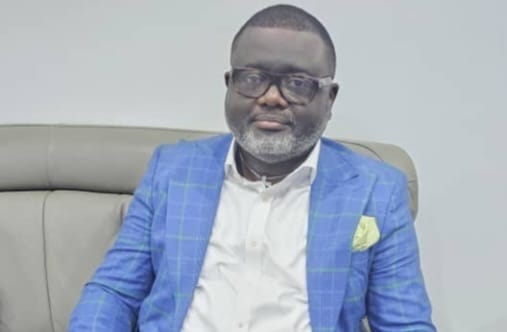
By Jones Onyereri
The assertions that President Tinubu’s intervention in Rivers State constitutes an unconstitutional power grab or a “military coup in civilian disguise” fundamentally misrepresent the legal, political, and security realities that necessitated federal action. Far from being a partisan maneuver, the declaration of a state of emergency and subsequent measures were lawful, proportionate, and grounded in the imperative to prevent a total collapse of governance and public order. Below is a thorough rebuttal to the allegations:
The Nigerian Constitution explicitly empowers the President to declare a state of emergency under Section 305 when there is a clear threat to public safety or a breakdown of governance. The escalation of pipeline vandalism by militants—which crippled economic activity, endangered lives, and exacerbated environmental degradation—coupled with the Supreme Court’s February 18 judgment highlighting governance failures in Rivers State, provided incontrovertible justification for federal intervention. The claim that “no emergency existed” ignores the state government’s demonstrable inaction in addressing these threats, which risked spiraling into wider violence. Emergency powers are, by design, temporary and exceptional, aimed at restoring stability, not undermining democracy.
The appointment of Admiral Ibok-Ete Ibas as Sole Administrator aligns with constitutional provisions for federal intervention during crises. Section 11 of the Constitution permits the National Assembly to legislate for a state in extraordinary circumstances, and the President’s action enjoys implicit legislative backing as a stopgap to avert anarchy. Admiral Ibas, a retired military officer with no overt political ties, was selected for his administrative expertise, not as a proxy for any faction. His mandate is strictly limited to stabilizing the state, facilitating the return to democratic governance, and ensuring the security forces can operate without partisan interference. To equate this with a “military coup” is hyperbolic and disregards the transparent, legal framework guiding his role.
Critics allege defiance of Supreme Court orders regarding state funds, but this misinterprets the interplay between judicial mandates and emergency executive authority. While the Court initially restricted financial flows to Rivers State due to governance disputes, the escalation of the crisis necessitated federal release of funds under the “doctrine of necessity” to sustain critical services like healthcare, education, and infrastructure. The Constitution prioritizes the security and welfare of citizens (Section 14(2)(b)), and the President’s duty to uphold this principle supersedes rigid adherence to procedural norms during emergencies.
The Sole Administrator’s actions, including the formulation of regulations and restructuring of local government administrations, operate within the bounds of his provisional mandate. These regulations require approval by the Federal Executive Council (FEC), ensuring oversight and accountability. The replacement of local government officials was not a “power grab” but a necessary step to dismantle networks complicit in revenue diversion or inefficiency. The Supreme Court’s insistence on democratically elected local governments remains sacrosanct, but interim appointments during emergencies are globally recognized mechanisms to restore functionality before elections can be organized.
Claims that the Administrator has overstepped by preparing a budget or appointing a Secretary to the State Government (SSG) ignore the practical realities of governance. In the absence of a functional State Assembly, provisional budgets based on existing frameworks ensure continuity of public services. Similarly, the appointment of an SSG—a routine administrative role—falls within the Administrator’s authority to maintain bureaucratic operations. These measures are neither permanent nor unconstitutional; they are transitional tools to prevent total institutional paralysis.
The narrative that this intervention serves Minister Wike’s political interests is speculative and distracts from its stated purpose. Restructuring boards and commissions, including the Rivers State Electoral Commission, aims to depoliticize institutions vital to free and fair elections. The focus on “Wike loyalists” assumes nefarious intent without evidence, whereas the Administrator’s appointments could equally reflect efforts to engage experienced personnel familiar with the state’s administrative landscape. The assertion that federal actions target Governor Fubara’s allies conflates routine accountability with persecution; in crises, restructuring is inevitable to eliminate inefficiency or bias.
Regarding the House of Assembly reconstruction, federal involvement ensures the project adheres to timelines and standards, avoiding further delays that could destabilize legislative functions. The Governor’s progress, while commendable, does not negate the need for independent oversight in a volatile environment.
President Tinubu’s intervention is neither indefinite nor authoritarian. Emergency measures will lapse once security is restored, and democratic structures are reinstated. The National Assembly retains the authority to review and curtail these actions under Section 11, ensuring checks and balances. To frame this as a “2027 political takeover” is a cynical distortion of a lawful, necessary intervention to prevent Rivers State from descending into chaos.
In conclusion, the allegations of a “civilian coup” or unconstitutional power grab disregard the constitutional safeguards and urgent pragmatic considerations guiding federal actions. The President’s duty to protect lives and livelihoods in Rivers State transcends political expediency. While vigilance against overreach is prudent, dismissing all stabilization efforts as partisan machinations undermines the legitimate pursuit of peace and order. The people of Rivers State deserve functional governance, not perpetual crisis—and federal intervention, however imperfect, is a constitutional means to that end.
Rt Hon Sir Jones Onyereri PhD, KSP, FCIPAN
April 12, 2025
Opinion
Tik Tok gets another lifeline from being banned

By Sonny Aragba-Akpore
On Saturday April 5,United States President Donald Trump announced an extension of 75 days for Tik Tok on his Truth Social platform, saying the TikTok deal “requires more work to ensure all necessary approvals are signed.”
He said he is signing an executive order “to keep TikTok up and running for an additional 75 days.”
With this development, the 170 million subscribers connected to Tik Tok in the United States of America (USA) have another 75 days to meander on the App unhindered.
This new deadline which an Executive Order covers follows the expiration of the first 75 days Order on April 5.
Tik Tok owners,ByteDance of China, have these 75 days to divest completely from the American operations or risk being sent to the dark or being banned.
China faces a 54% aggregate tariff on goods imported into the US, and has retaliated with 34% in counter tariffs.
Reports suggest several potential buyers for TikTok have cropped up in recent days.
Amazon has put in a last-minute offer to the White House to acquire the platform, according to Agency reports though the firm has declined comment.
Several other potential buyers include billionaire Frank McCourt, together with Canadian businessman Kevin O’Leary. Alexis Ohanian, who co-founded Reddit, has said he has joined Mr McCourt’s bid.
Computing giant Microsoft, private equity giant Blackstone, venture capital firm Andreessen Horowitz and search engine Perplexity AI are also reportedly in the running for a stake.
Trump has said his administration was in touch with four separate groups interested in a potential TikTok deal, though he has not named them.
Vice-President JD Vance is spearheading the administration’s effort to find a buyer.
The president has also suggested the US could offer a deal where China agrees to approve a TikTok sale in exchange for relief from US tariffs on Chinese imports.
“We hope to continue working in Good Faith with China, who I understand are not very happy about our Reciprocal Tariffs,” Trump wrote on Truth Social.
He added that the trade levies are “the most powerful economic tool, and very important to our national security”.
Trump granted TikTok a second 75-day extension to comply with a law that requires the hugely popular video app to either sell its US operation or face a ban in the country.
“We do not want TikTok to ‘go dark’,” Trump wrote on Truth Social. “We look forward to working with TikTok and China to close the Deal.” The platform is currently owned by Chinese company ByteDance.
Trump’s first extension was granted after he took office in January and this expired on Saturday,April 5,2025.
In a statement on Friday, April 4,ByteDance said it had been in discussion with the Trump administration, but “an agreement has not been executed”.
“There are key matters to be resolved. Any agreement will be subject to approval under Chinese law,” a spokesperson said.
Former US President Joe Biden’s administration had argued that TikTok could be used by China as a tool for spying and political manipulation.
Congress passed a bipartisan law last year that gave ByteDance six months to sell its controlling stake in TikTok or see the app blocked in the US.
Opponents of a ban have cited freedom of speech as a reason for keeping the platform open.
But the new extension comes as the Trump administration tries to broker a deal to bring the social media platform under American ownership, and keep the popular app running in the US.
“The Deal requires more work to ensure all necessary approvals are signed,” Trump wrote on his Truth Social platform on Friday.
The social media platform, which says it has more than 170 million users in the US, must close in the US under a law passed by Congress – unless a buyer is found.
Agency reports that a TikTok deal was nearly finalised on Wednesday last week but fell apart after Trump on the same day announced sweeping global tariffs, including on China.
Agency reports further explained that ByteDance representatives contacted the White House to inform them China would no longer approve the deal unless negotiations on the tariffs could take place .
Unnamed sources said the plan had been for Trump to sign an order initiating a 120-day period for closing the deal, allowing time to finish paperwork and secure financing.
The agreement had won approval from existing investors, new investors, ByteDance, and the US government, but China backed out once Trump imposed the global import taxes.
The Chinese embassy in Washington DC said in a statement that it “opposed practices that violate the basic principles of the market economy”.
A federal law signed by former President Joe Biden in 2024 effectively banned TikTok if it remained under Chinese ownership. The initial law called for the app to permanently go offline on Jan. 20, but Trump signed an executive order extending the deadline by 75 days.
The US TikTok ban, which received overwhelming bipartisan support, required TikTok’s parent, ByteDance, to divest the short-form video app over US concerns that it posed a national security threat.
US officials have long argued that the Chinese government, which is designated as a US adversary, could gain access to Americans’ TikTok user data for nefarious purposes or use the platform to spread propaganda.
The US law banning TikTok forces web service providers to stop hosting the app and requires Apple and Google to pull it from their app stores.
TikTok took a challenge to the law all the way to the US Supreme Court, arguing that it infringed on the company’s First Amendment and other constitutional rights. A group of TikTok users made similar claims in a companion case, claiming they, too, had been deprived of constitutional protections.
But the high court ruled in favor of the government, reasoning that TikTok, as a foreign entity, wasn’t entitled to constitutional protections and that national security concerns outweighed the government’s restriction on TikTok use. The court also said the law was limited in its infringement on free speech because social media users could access and post on other social media platforms.
The Act to ban Tik Tok if it did not divest its operations in the USA was signed with broad support from Republicans and Democrats.
Although some lawmakers had urged President Joe Biden to grant a reprieve to prevent TikTok from going dark in the U.S. as soon as Jan. 19,2025 ,the TikTok ban had already resulted in a number of “TikTok refugees” who moved to another Chinese app, RedNote, short for “Little Red Book.” RedNote became the most downloaded app in Apple’s app store in the U.S. the week leading up to the Supreme Court’s decision. If this trend continues, this “migration” to a similarly situated app might defeat the purpose of the Act. The TikTok ban illustrates how U.S. regulatory actions are designed to mitigate potential threats posed by foreign adversaries, significantly increasing compliance requirements for cross-border investments and technology operations. Particularly, the Supreme Court’s decision upholding the TikTok ban underlines the trend of intensifying scrutiny of foreign-controlled entities that collect or handle sensitive data in the U.S.
Although it’s not clear whether there will be a reprieve for Tik Tok,there are strong indications that the Trump administration needs more time to understand the situation and perhaps to be the one to implement the ban.
TikTok has 1,925 billion users globally, with 170 million monthly active users in the United States.
The average daily time spent on TikTok has more than doubled from 27 minutes in 2019 to 58 minutes in 2024.
The most popular categories on TikTok are Entertainment, Dance, and Pranks, with billions of views each.
Top influencers on TikTok include Charli D’Amelio, Khabane Lame, and Addison Rae, each with tens of millions of followers.
TikTok’s user base has grown exponentially from 133 million in 2018 to over 1,925 billion in 2024.
Daily active users on TikTok have skyrocketed into the millions, reflecting the platform’s ability to engage users on a daily basis.
In the year 2020, Trump issued an executive order citing TikTok’s ability to capture vast amounts of user data as a significant national security threat. The order sought to prohibit certain transactions involving ByteDance but was blocked by federal courts.
Subsequently, the Trump Administration directed ByteDance to divest its U.S. TikTok operations and user data, but these efforts were stalled as negotiations with the president Joe Biden Administration aimed at a nondivestiture agreement failed to resolve the government’s concerns.
ByteDance’s proposed national security agreement was ultimately deemed insufficient to mitigate risks posed by Chinese control. Against this backdrop, Congress enacted the sale-or-ban law, further targeting TikTok and similar applications.
> According to the Supreme Court’s finding, TikTok’s ultimate parent company, ByteDance, is a privately held company that has operations in China. ByteDance owns TikTok’s proprietary algorithm, which is developed and maintained in China. The company is subject to Chinese laws that require it to assist or cooperate with the Chinese government’s intelligence work and to ensure that the Chinese government has the power to access and control private data that the company holds.
Underscored in the decision, TikTok’s extensive data collection from more than 170 million U.S. users could be exploited for surveillance, public influence campaigns or other harmful purposes that threaten national security. The Act and the holding reflect Congress’ and the Supreme Court’s efforts to address growing concerns over foreign adversary-controlled applications through the access to sensitive data of U.S. nationals and the resulting potential risks to U.S. national security.
-
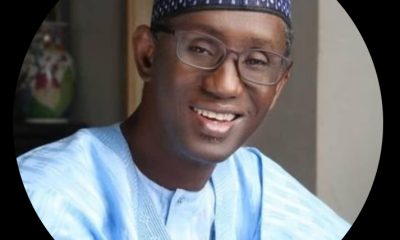
 News11 hours ago
News11 hours agoInsecurity: Criminals Cart Away NSA Ribadu’s Office Hilux During Juma’at Prayer In Abuja
-

 News20 hours ago
News20 hours agoSad! Explosion rocks Lagos
-
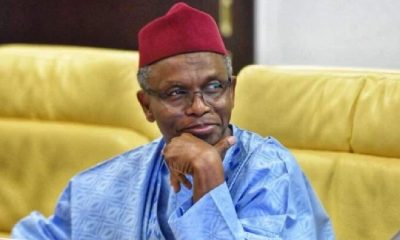
 News20 hours ago
News20 hours agoWe only had lunch with Buhari not 2027 politics -El-Rufai
-

 News20 hours ago
News20 hours agoParts of Abuja, Niger in total darkness -AEDC confirms
-
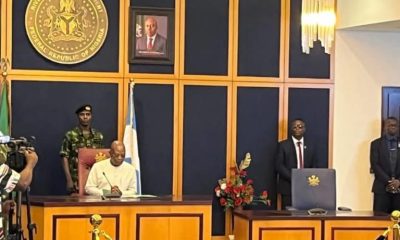
 News19 hours ago
News19 hours agoIbas gives reasons why Sole Administrators were appointed for Rivers councils
-

 News14 hours ago
News14 hours agoOERAF Rounds Up Late Chief Ekuogbe Rowland Akpodiete’s remembrance with Novelty Match
-
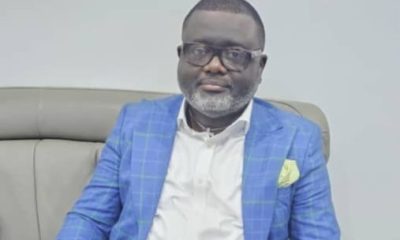
 Opinion14 hours ago
Opinion14 hours agoDismantling the false Narrative of a “Coup” in Rivers State
-

 News18 hours ago
News18 hours agoFive countries with easy work visas in 2025








